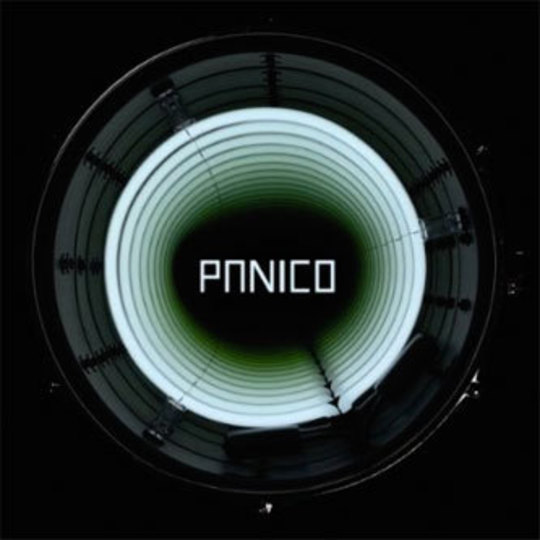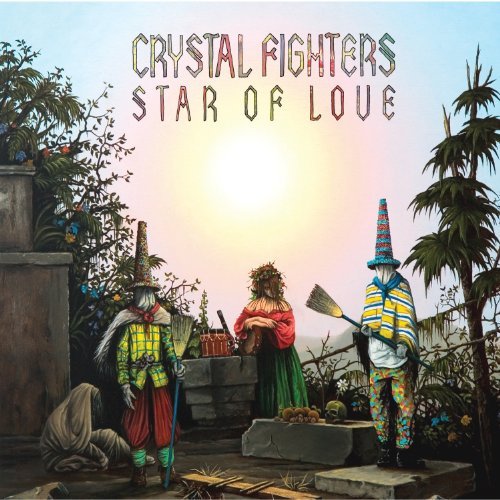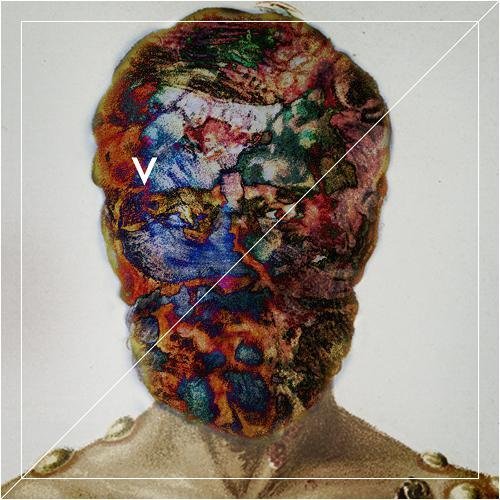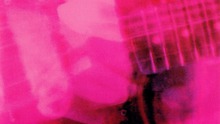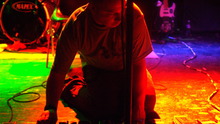While Chile could hardly call itself a vanguard for underground leftfield music, it would be fair to say that the reign of military dictator Augusto Pinochet provided a topic for many artists to vent their spleens over. One listen to Los Prisioneros' 'No Necesitamos Banderas' off their groundbreaking 1984 debut long player pretty much tells its own story, musical influences excepted. What records like this created was a lineage of up-and-coming artists with a message to spread, but in search of a more accessible, western approach to convey it with. Hence the emergence of bands like Panico, a Santiago based quintet heavily influenced by a mixture of American and English post-punk, industrial noise and the odd rummage through shoegaze's beginnings for good measure.
Although Chilean by descent, the seeds of Panico were actually sown in Paris during the early 1990s, founder members Edi Pistolas and Carolina Tres Estrellas having met at school before heading back to Chile and recruiting a succession of musicians to play in their unorthodox project, inspired by a shared love (at that time) of Pixies and The Ramones. While little is known of their formative years, it would be fair to cite Panico as being one of the front runners on Santiago's alternative music scene, not least by way of their introduction of many obscure artists to an audience previously unfamiliar with such wares.
Sixteen years and six albums later, their nomadic existence has taken them from label to label, their resurgence owing much to the switch from Sony to Tigersushi Records, culminating in 2005's excellent Subliminal Kill long player. With a Franz Ferdinand namecheck and subsequent support slots to boot, Panico have suddenly found themselves in demand, and earlier this year celebrated Glasgow independent Chemikal Underground added them to its roster.
So, with engineer Paul Savage and producer Gareth Jones on board - whose credits between them include the likes of Mogwai, Liars, These New Puritans and the aforementioned Franz Ferdinand - Panico's seventh album Kick sounds as if it could have been recorded in the Scottish capital at any point since about 1980.
From the white noise encrusted intro of opener 'Illumination' to the Mary Chain-esque vibe - vocally at any rate - of 'Algodon' there's a Glaswegian influence coarsing through Kick's rugged veins. That's not to say their inspiration stops there; 'Bright Lights' Fall-like angular discord and the tribal tubthumping punctuating 'Reverberation Mambo' isn't too dissimilar to Killing Joke in their formative years, or Archie Bronson Outfit today.
It would be unfair to deem Panico as revival fetish copyists, as the one distinctive trait welding Kick together comes in the form of their lyrical asides, which traverse through broken French and Hispanic into the occasional spout of English that occasionally becomes a little confusing, but for the most part adds a charming degree of individualistic wordplay to proceedings, even if for the most part an interpreter (or subtitles) wouldn't go amiss.
Although some cynics might see Kick as another addition to the lengthy list of post-punk pastiches, Panico at least offer their own interpretation on the genre, not to mention a quick rummage through their impressive record collections to boot. Original? Not in the slightest, yet still rewarding all the same.
-
7Dom Gourlay's Score

